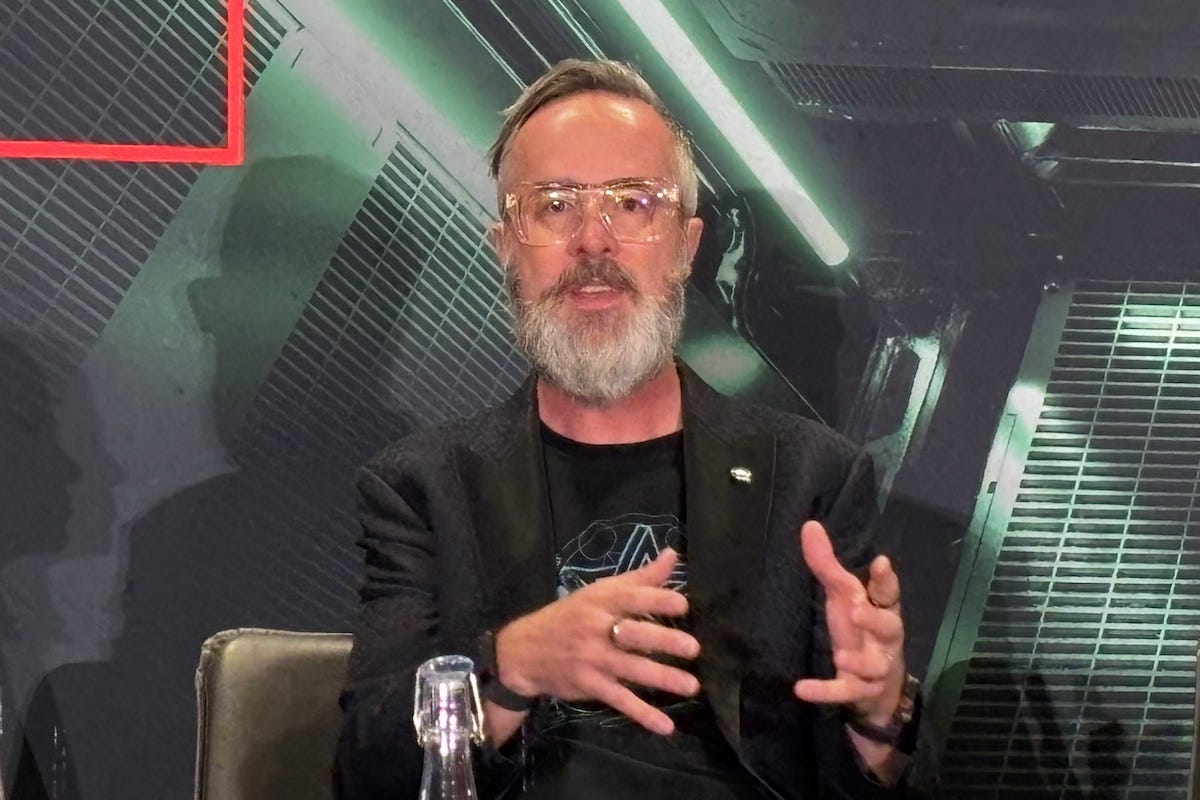Strangeworks backs agentic AI–quantum link to speed scientific breakthroughs
Expanding AI-quantum collaboration could transform how humanity tackles its most complex challenges
AI agents capable of autonomous decision-making are emerging as potential accelerators of scientific progress. Integrated with quantum computing, these systems could address problems that have resisted decades of research.
By combining the pattern recognition and contextual reasoning of AI with quantum’s potential for high-fidelity simulation, the hybrid approach could unlock breakthroughs across multiple scientific domains. Yet scaling their impact will require advances in hardware, better access to scientific data, and clearly defined safeguards for their use.
William Hurley (also known as Whurley), Chief Executive of Strangeworks, said the real value of agentic AI is in enabling “super complex tasks that I might not be able to do by myself,” not just automating repetitive processes. He views AI agents as a way to expand the scope of work that researchers and enterprises can tackle, particularly when paired with emerging quantum capabilities.
A key target for this combination is quantum computing’s “cold start problem”—the uncertainty many organisations face in identifying viable quantum use cases, formulating those problems, and deploying the resulting solutions effectively.
“They don’t know what to discover, what to use a machine for. They don’t know how to formulate a problem once they do, and then they don’t know where to deploy it,” Whurley explained. Strangeworks’ approach is to use AI agents to assess a user’s challenges, identify quantum-appropriate workloads, and generate code optimised for specific hardware.
“Agent technology will dramatically improve the adoption of quantum computing,” he said. “If you need to have a physicist to run a computer, you have a total enterprise addressable market of zero.”
Whurley wants to see the number of people contributing to science rise from today’s estimated eight million to hundreds of millions—or even billions.
“The law of large numbers means we will make more progress as a species,” he said.
Quantum’s role in solving complex challenges
Speaking in London at the Commercializing Quantum Global 2025 event, Whurley outlined how quantum’s most impactful contributions may come from simulating complex systems that classical machines cannot model efficiently.
“There are problems that require digital twins of the real world,” he said, noting that computational chemistry, advanced materials design, and biomedical research are prime examples.
Headquartered in Austin, Texas, Strangeworks operates the largest catalog of quantum and quantum-inspired computing resources on an innovative cloud platform backed by computational experts. Its AI-powered workflows aim to “turn computational complexity into real-world solutions” by helping enterprises accelerate breakthroughs, solve high-impact problems, and prepare for a future enabled by quantum computing.
While high-performance classical computing can still address many problems, Whurley said there are “problems so intricate and computationally demanding that they require the parallelism and unique formulations only quantum architectures can offer.”
Current limitations—such as restricted qubit counts and the variety of architectures including superconducting, trapped ion, neutral atom, and annealing—mean solutions must be carefully matched to hardware capabilities.
He explained that predictions for quantum’s readiness vary widely because each architecture faces distinct milestones and scales at a different pace.
“When people give you different timelines, they’re talking about different problems and different machines,” he said. A breakthrough in one platform could make an application viable within months, while another might require years of development.
Ethical and policy considerations
The convergence of agentic AI and quantum technologies presents both risks and opportunities, Whurley said.
He sees three main categories: “First, there are technical flaws like hallucinations in large language models that we need to clean up. Second, there are limitations—we’ll soon have to rely on synthetic data once these systems absorb all existing human knowledge. And third, there’s the issue of bad actors, who might misuse the technology for harmful purposes.”
He suggested that one way to address misuse is by building safeguards into the systems themselves. AI agents, for example, could be designed to recognise when a user is attempting something harmful and stop the process before it advances. He said such technical guardrails should complement policy measures.
“Fear and uncertainty and doubt are horrible motivators for policy people,” Whurley said.
He warned that regulations based primarily on those drivers could slow beneficial innovation, pointing to export restrictions and national security debates as examples of how political narratives are already shaping quantum development.
Widening adoption and participation
For all the discussion around qubit milestones and algorithmic advances, Whurley sees adoption as the most immediate barrier to quantum’s broader impact.
“Software has one sole purpose in its entire life,” he said. “That is the elimination of complexity.” Without that simplification, quantum computing will remain accessible only to a narrow group of specialists.
He compared current scientific participation to a walled garden accessible only to a small fraction of humanity.
“The big role of agents, both in quantum and science in general, is unlocking this walled garden and allowing everybody to participate in the process somehow,” he said.
Whurley also sees a role for people outside traditional scientific fields.
“They’re curious, they ask why, they question things,” he said. “Pair that with a collaborator that has a resource you can’t even fathom—access to all the knowledge in the world—and you create possibilities we can barely imagine.”
He argued that quantum’s commercial potential should not be measured solely by a single breakthrough moment.
“We can accelerate all scientific paths,” he said. “We might find out some things are a pipe dream, but we’ll find out much faster.”
For Strangeworks, the goal is to scale both access to quantum computing and the AI-powered workflows that make it usable. By doing so, the company aims to ensure that the next wave of scientific discovery is not limited to elite institutions but is accessible to a global community with the creativity, curiosity, and computational tools to drive meaningful progress.



